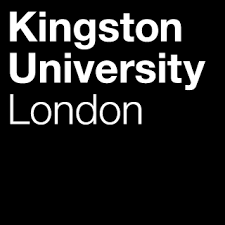Leadership and Change Management

21 Jan 2026 (Intake closed)
Apply by: 14 Jan 2026
New Session
21 Jan 2026 (On Campus), 04 Feb 2026 (On Campus), 18 Feb 2026 (On Campus), 04 Mar 2026 (On Campus), 18 Mar 2026 (On Campus), 01 Apr 2026 (On Campus)
Course overview
The module can be taken as a free-standing module or as an optional module within the BSc (Hons) Healthcare Practice and does not require students to have previously studied leadership and management. This module is aimed at professionals involved in leading others, teams or organisations or involved in identifying and leading change in practice aimed at service improvement. Students will be encouraged to network with key influencers and opinion leaders within the organisation to help them gain practical insights into leadership and change.
The module takes a client-centred and service-based approach to improvements in the patient/client experience. A number of leadership theories/approaches are explored and evaluated; a blend of learning approaches is employed to promote and enhance the student's learning experience.
Aims
- To equip students with the conceptual knowledge of leadership and change management as applied to practice.
- To extend students' understanding and knowledge of change management theories and their application to managing change.
- To enhance students’ ability to analyse the key factors for successful implementation of change.
- To develop potential leadership attributes through a variety of learning activities
What and how you will learn on the module
How you will learn:
This module is delivered using a blended learning approach which integrates a variety of on campus and online activities, supported by Canvas, the University’s virtual learning environment. A complementary range of activities are employed to engage you in the critical exploration of key topic areas, and the completion of formative tasks during the module also helps to keep you on track with the learning and gain feedback on your understanding of the content. A sense of community is developed and maintained with frequent opportunities for peer learning, enabling you to share your practice experiences and to learn from each other. Level 6 and level 7 students taking this module may be taught together.
Academic writing and critical thinking skills are developed through ‘The Critical Thinking Skills Toolkit’ and other academic practice activities embedded within the module, that have been designed to nurture the skills needed to facilitate you to become a thoughtful, objective and reasoned thinker. This will help you tackle the assignment(s) confidently, understand marking criteria, use evidence, take a reasoned approach, make structured arguments and engage with other points of view.
What you will learn:
- Theories of leadership (Trait, Behavioural, Situational Contingency, Path Goal Theory)
- Leadership approaches: Transformational/transactional leadership
Skills and competencies of leadership: - Emotional and Social Intelligence
- Questioning & Listening; Networking, Negotiation, Coaching
- Motivation, Problem solving; Conflict transformation
- Team working
- Roles and functions of teams and team members
- Group dynamics and transactional analysis
- Strategies for leading teams/projects effectively
- Organisational and professional culture impacting on effective team work
- Cultural competence and interprofessional/multi-agency working
- Entrepreneurship
- The nature of entrepreneurship
- Diversity and entrepreneurship
- Organisational/Service Assessment strategies
- PESTELI analysis; Force field Analysis, SWOT analysis, 5 ‘whys’, Audit
- Change theories/models
- Kotter, Lewin & Rogers; Key factors for sustainable change;
- Organisational culture and promotion of change
- Strategies for initiating and implementing change
- Planning, Communication, Education; Monitoring and evaluation
Accredited by




Learning Outcomes
Discuss critically theories of leadership including sociological and psychological perspectives.
Analyse and appraise the dynamics and competencies of leading change at any level in the organisation
Evaluate critically strategies to identify service components which can potentially benefit from change/innovation, considering the role of organisational culture
Develop in depth knowledge and understand models of change which can facilitate the planning and successful implementation of change e.g. Plan Do Study Act (PDSA) cycle, taking into account the diversity of the workforce, social and economic factors
Evaluate the process of change, and appraise their own performance in leading change and make recommendations for [self] developing higher leadership or managerial skills
Demonstrate theoretical knowledge and skills of synthesis relevant to cost benefit analysis of the organisation, service or practice development in relation to the proposed or implemented change

Course details
Downloads
Prerequisites
Funding

Make an enquiry
Make an enquiry
